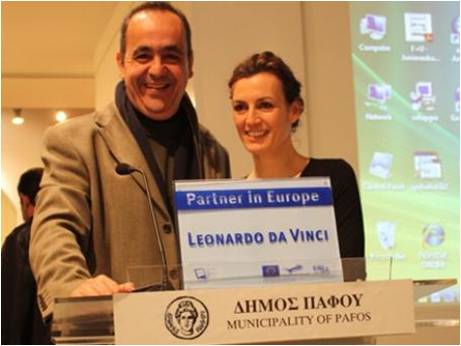Projects
Litusgo
Date: 2010-2012
Funded by: EU, through the Leonardo Da Vinci Programme
Role of AKTI in the project: Partner
Other partners: Isotech Ltd, Municipality of Pafos, Aegean Network, ONISIS web development, Municipality of Kirkop, EUCC- The Coastal Marine Union.
Training Mediterranean Local Authorities And Civil Organizations On Integrated Coastal Zone Management And Reaction To The Impacts Of Climate Changes
LitusGo: TRAINING MEDITERRANEAN LOCAL AUTHORITIES AND CIVIL ORGANIZATIONS ON INTEGRATED COASTAL ZONE MANAGEMENT AND REACTION TO THE IMPACTS OF CLIMATE CHANGES
A LEONARDO DA VINCI Multilateral project for the Development of innovation( 2009- 2166 LMP, 502132-LLP-1-2009-1-CY-LEONARDO-LMP)
Rationale:
Mediterranean coastal areas have usually a low resource base and at the same time are under severe anthropogenic pressure: over exploitation and inefficient management, especially in tourist areas, coupled with the impacts of climate changes are the characteristics.
According to data (e.g UNDP-ACT, Eurostat) there is a gap in information, training and capacity building on these issues in the Mediterranean at Local level. Local Authorities and NGOs are usually not well informed, not trained and thus not able to take action and decisions that promote sustainable development, compiling the impacts of climate change with the principles of Integrated Coastal Zone Management.
The EU ICZM Recommendation (2002/413/EC) suggests to the Member States to “(L148/26) determine how appropriate national training an education programmes can support implementation of integrated management principles in the coastal zone”. The ENCORA (European Network of Coastal Research) in its European Coastal Action Plan suggests as one of the four hey actions the concerted development of a European Network of capacity building resource centres, aiming among others to the creation of a critical mass of practitioners and policy makers that push ICZM to the centre stage of the economic and environmental goals.
The LitusGo project
LitusGo aims at filling this training gap through the development of a well-structured, innovative, interactive, work-linked vocational training program, directly focused on Mediterranean Local Authorities and NGOs and through them to practitioners, tuned to accommodate Mediterranean particularities and needs especially in touristic coastal areas.
The methodology is problem solving oriented and involves active and cooperative learning methods, such as peerlearning and e-training in order to promote positive learning attitudes among the conflicting key actors- target groups. Simple and extended forms of open method of coordination are implemented throughout the project, to promote social cooperation and stimulate policy debate among the key actors involved, and achieve a balanced and active participation of trainees and LitusGo partners. The results will be translated in English, Greek, Maltese and Turkish.
Information and Communication Technologies are extensively used in the project in an innovative and creative way with the creation of a dynamic portal and the implementation of mediawiki for the e-Training Manuals, the setting up of a coastal community e-Forum, a coastal group in Facebook, coastal and climate changes RSS for the users of the portal etc.
Partners
The partnership is formed by representatives of the major coastal key actors: SMEs, Consultancies, NGOs and Local Authorities:
From Cyprus:
- Coordinator: ISOTECH ltd Environmental Research and Consultancy, www.isotech.com.cy
- Municipality of Pafos www.pafos.org.cy
- AKTI Project and Research Centre, www.akti.org.cy
From Greece:
- Aegean Network www.ellinikietairia.gr
- ONISIS web development www.onisis.gr
From Malta
- Municipality of Kirkop
The Netherlands
- EUCC – The Coastal and Marine Union www.www.eucc.nl
Impacts:
- Lisbon Strategy sets the target: European economy should become the most competitive and dynamic knowledge-based economy in the world. LitusGo introduces innovative training approaches to address two important global environmental issues with high economic value and European-wide significance: coastal management and climate change. By building capacity and non-routine skills of key actors and decision makers at the local level and focusing on the fragile coastal region of the Mediterranean, LitusGo aims in contributing to the European effort of enhancing high-qualified human capital (COM(2008) 868) and promote sustainable development.
- With a strong dissemination and exploitation strategy, the project creates an innovative training product, with problem-solving orientation immediately exploitable in the entire Med-region and easily customised to accommodate the needs of other European coastal areas.
- A major envisaged impact is to support local policy makers, practitioners and society to develop skills and capacity in order to foster the knowledge base for policy and practice on sustainable development in the Mediterranean. By acquiring non routine skills, the trainees will improve their status in the labour market. The promotion of networking, synergies and mobility is an inherent activity in LitusGo.
LitusGo Gallery http://www.litusgo.eu/index.php?page=gallery



